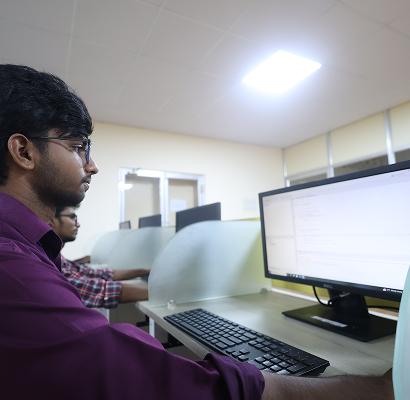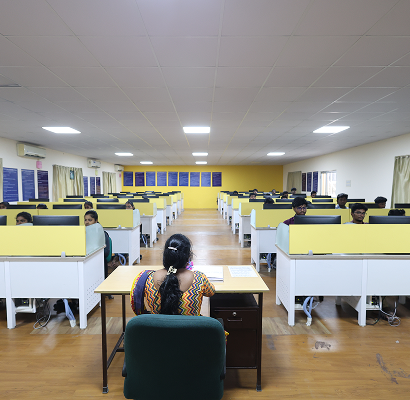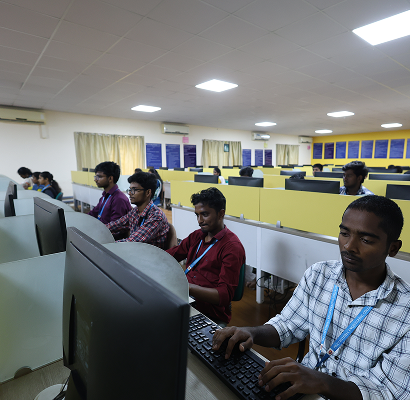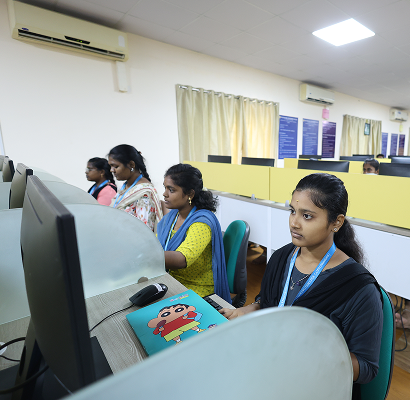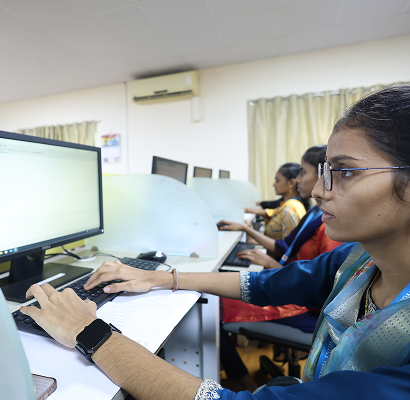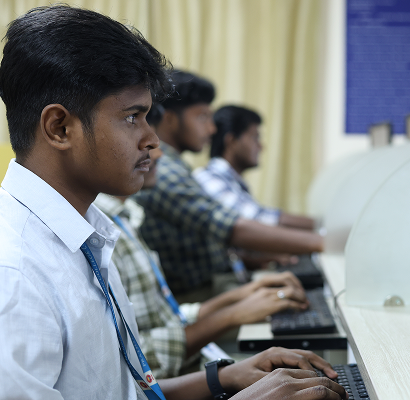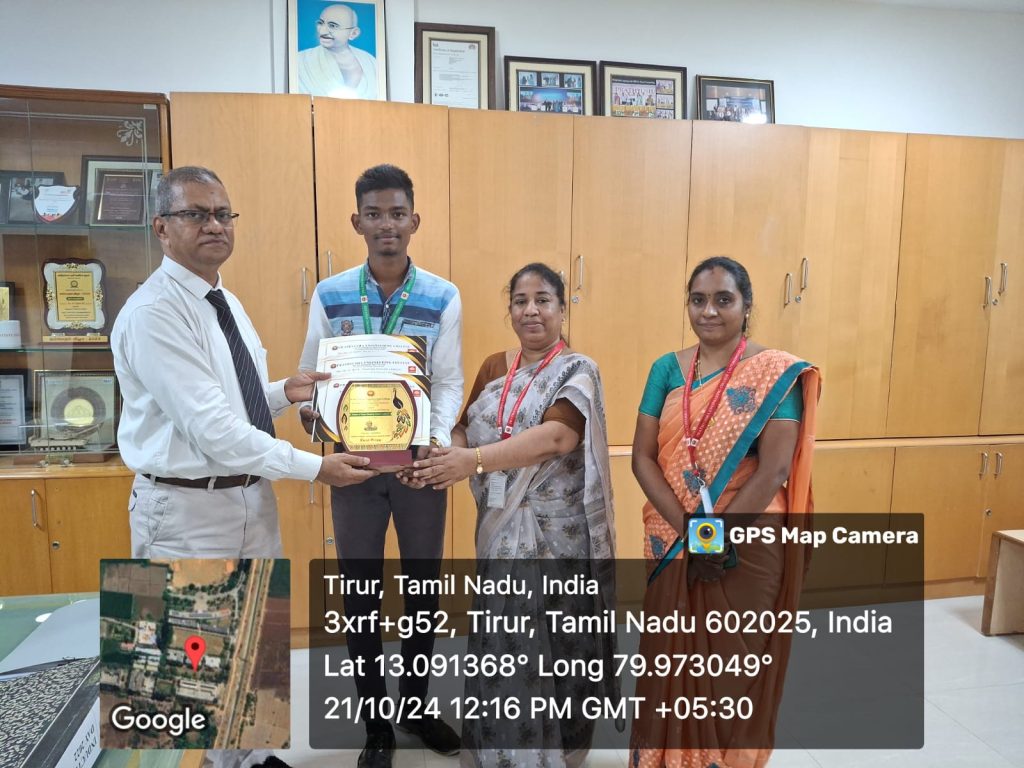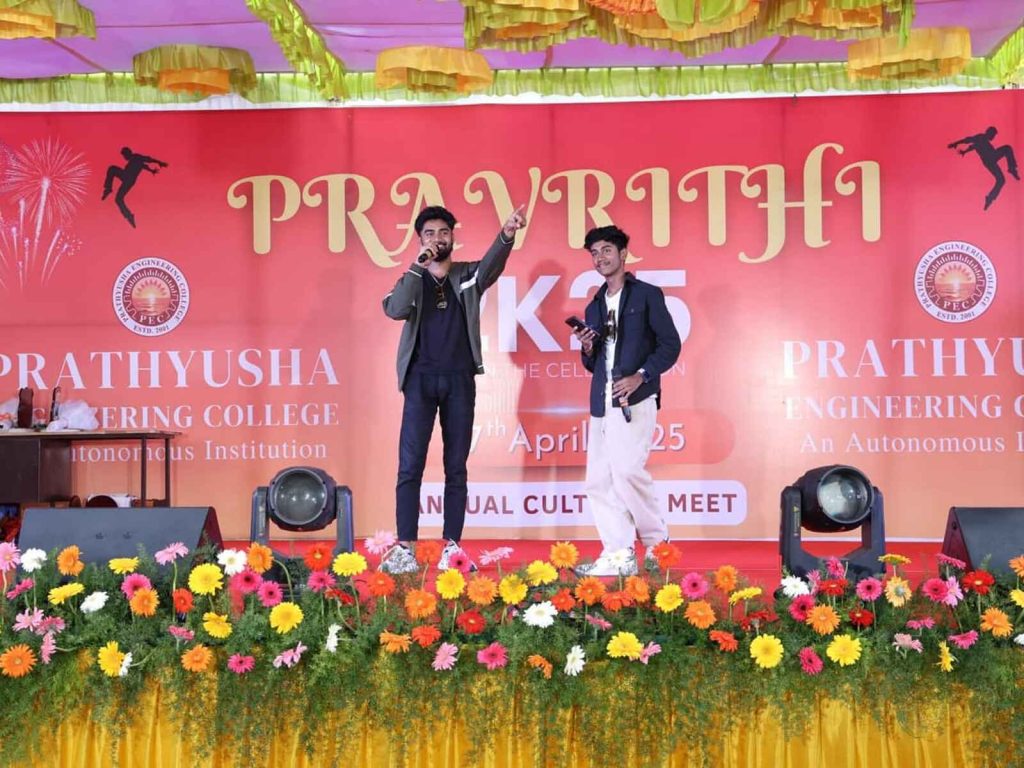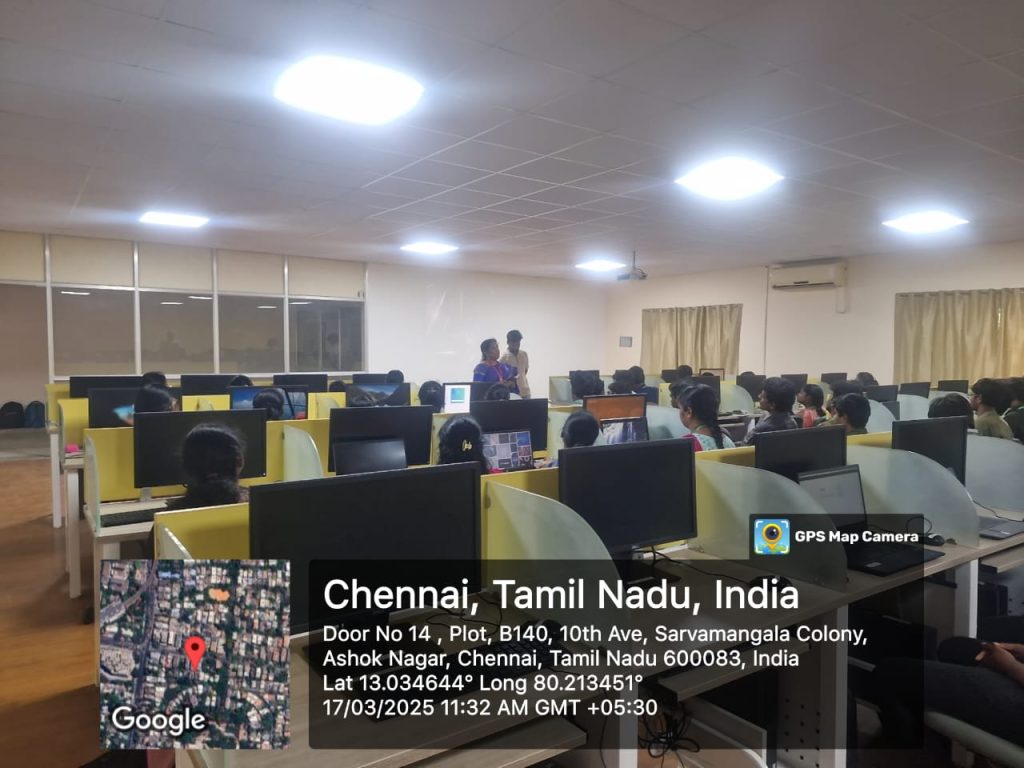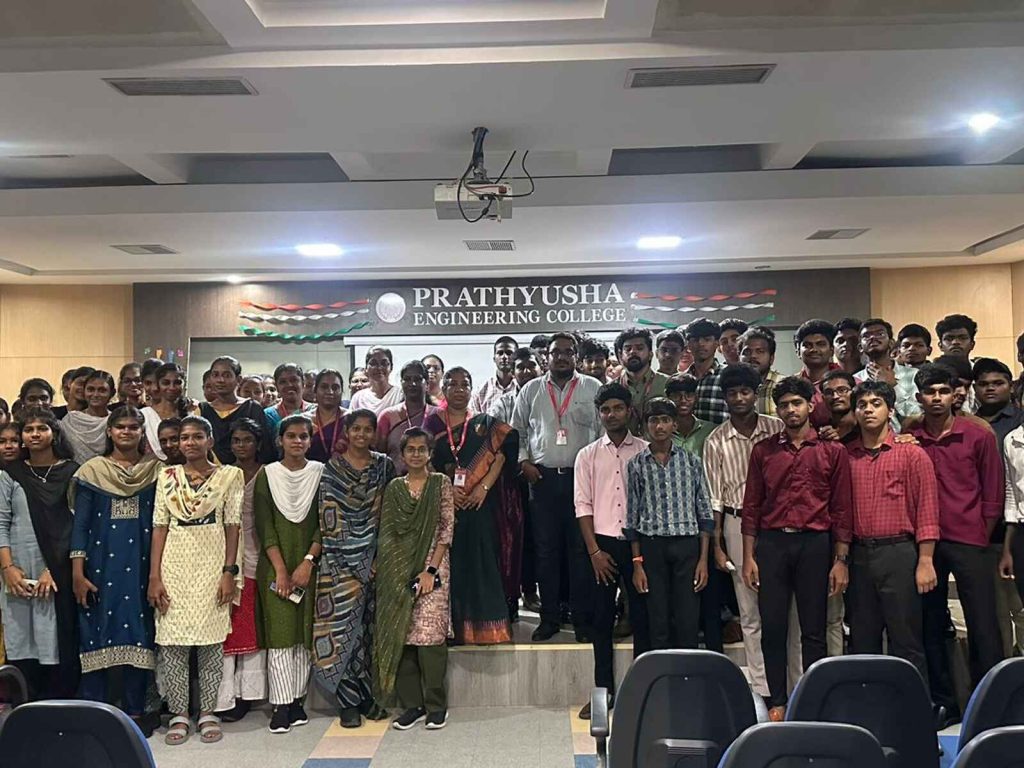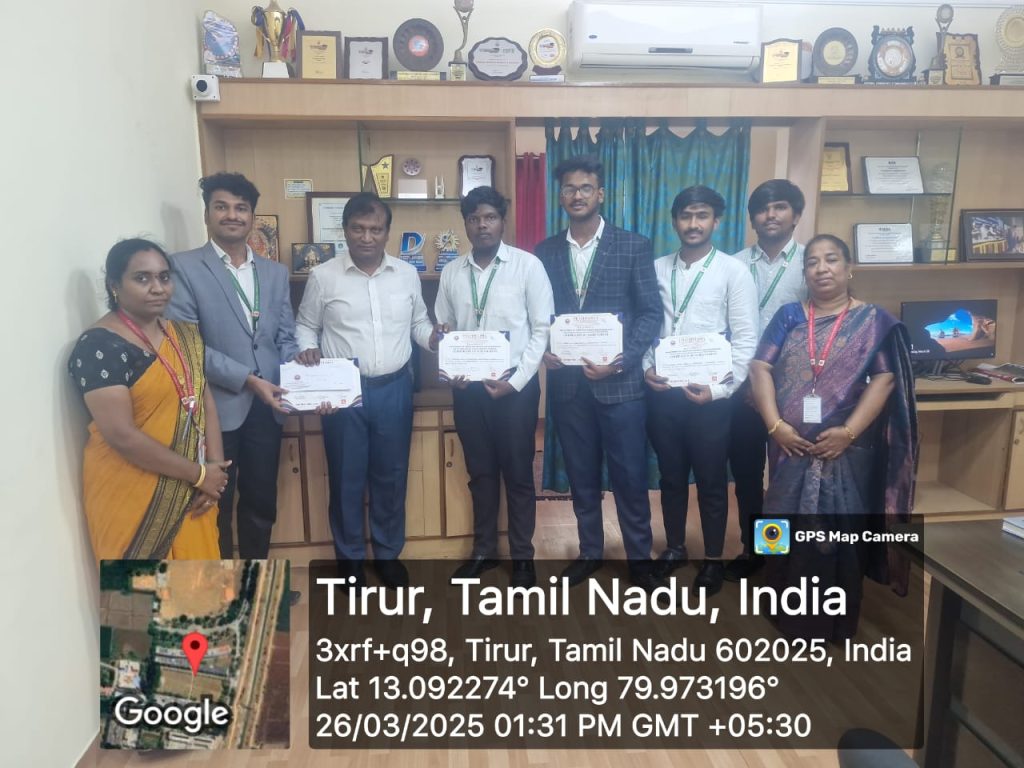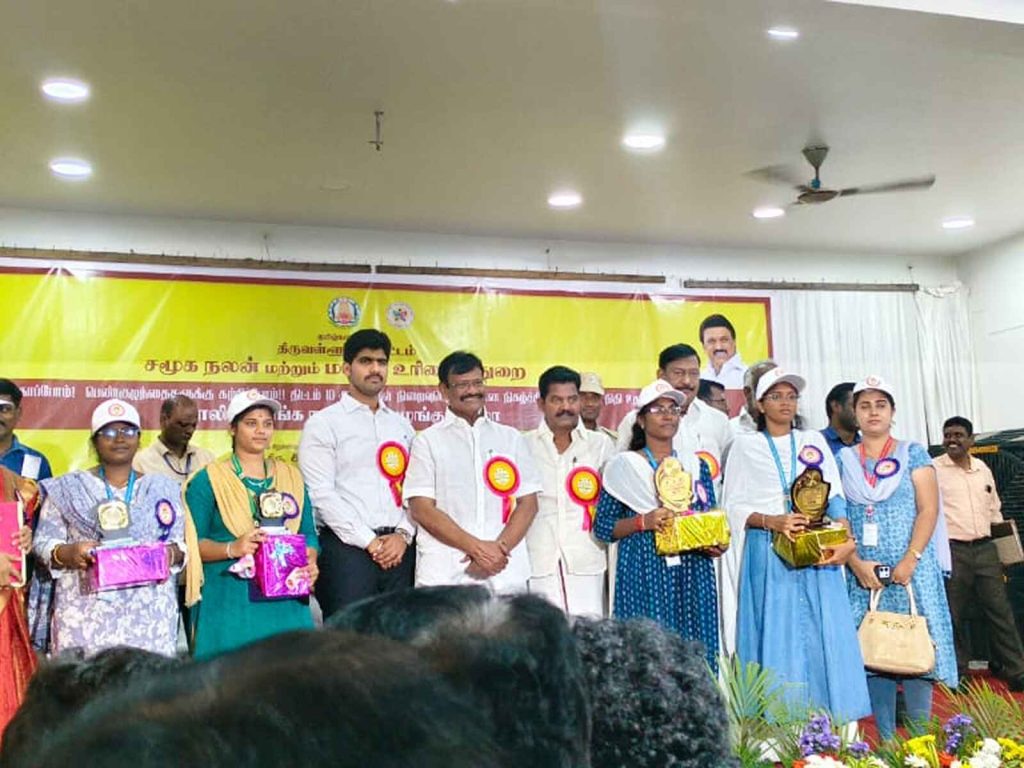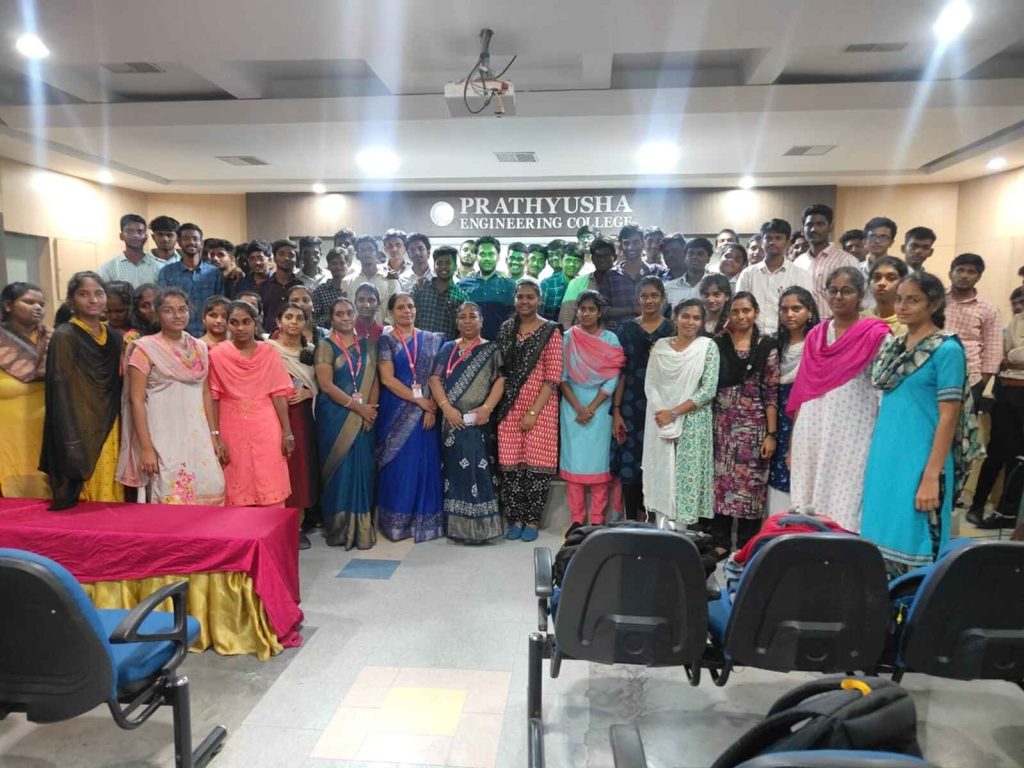- Result : 2024-2025 Percentage : 82.39%
- Result : 2023-2024 Percentage : 85.45%
- Result : 2024-2025 Percentage : 82.39%
- Result : 2023-2024 Percentage : 85.45%
About The Department
The Department of Computer Science and Engineering [Artificial Intelligence and Machine Learning] is a specialization programme in Computer Science and Engineering. It is a 4 Year degree programme started in the year of 2023. The main objective of the department is to provide an innovative Computer Professionals in the field of Artificial Intelligence and Machine Learning. The department flourishes to impart an effective technical education through experiential learning and expand concrete infrastructure with expert faculty and dynamic student community for reaching better target in the field of Artificial Intelligence and Machine Learning both in placement and higher education.
The Department has the state-of-the-art facilities for various laboratories, a well equipped seminar hall, smart class rooms to support e-Learning, and a department library.
The department insists on enforcing Outcome Based Education (OBE) in the tenure of under graduation with the aid of method of having college ranks, higher placement records, and advanced higher order thinking.
To emphasize on lifelong learning and making use of information on fixing actual world issues, we conduct numerous technical activities like hackathons, coding competitions, workshops, Guest lectures, seminars and Industrial visits. We strive to train our first-class in phrases of information dissemination and produce out our students with an enriched experience.
Our initiatives will surely mildew the students in any such manner that they face the outside world with spark off technical, interpersonal and trouble-solving abilities. In order to prepare Industry geared up students with holistic character, we tie up with various corporations and often organize diverse sports like enterprise visits, technical talks, and actual-time initiatives to hone the scholars’ technical and smooth competencies.
Vision & Mission
Vision
- To promote highly Ethical and Innovative Computer Professionals in the field of Artificial Intelligence and Machine Learning by providing required skill sets through excellence in domain expertise and interactive industry interface and shape them to be a socially conscious and responsible citizen.
Mission
- To provide a globally competent professionals to learn in the field of Artificial Intelligence and Machine Learning. and to be innovative in solving real world problems.
- To initiate Industry oriented activity and Centre of Excellence forums to solve the real world problems.
- To build moral and ethical values in their profession.
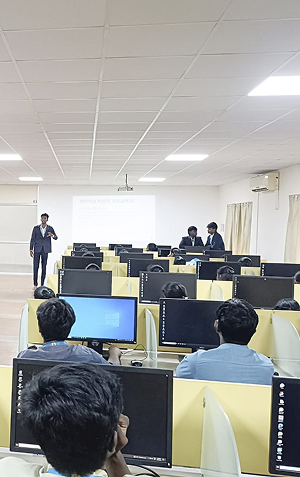

PO,PEO,POS
Programme Outcomes (POs)
- Engineering Knowledge: Apply knowledge of mathematics, natural science, computing, engineering fundamentals and an engineering specialization as specified in WK1 to WK4 respectively to develop to the solution of complex engineering problems.
- Problem Analysis: Identify, formulate, review research literature and analyze complex engineering problems reaching substantiated conclusions with consideration for sustainable development. (WK1 to WK4)
- Design/Development of Solutions: Design creative solutions for complex engineering problems and design/develop systems/components/processes to meet identified needs with consideration for the public health and safety, whole-life cost, net zero carbon, culture, society and environment as required. (WK5)
- Conduct Investigations of Complex Problems: Conduct investigations of complex engineering problems using research-based knowledge including design of experiments, modelling, analysis & interpretation of data to provide valid conclusions. (WK8).
- Engineering Tool Usage: Create, select and apply appropriate techniques, resources and modern engineering & IT tools, including prediction and modelling recognizing their limitations to solve complex engineering problems. (WK2 and WK6)
- The Engineer and The World: Analyze and evaluate societal and environmental aspects while solving complex engineering problems for its impact on sustainability with reference to economy, health, safety, legal framework, culture and environment. (WK1, WK5, and WK7).
- Ethics: Apply ethical principles and commit to professional ethics, human values, diversity and inclusion; adhere to national & international laws. (WK9)
- Individual and Collaborative Team work: Function effectively as an individual, and as a member or leader in diverse/multi-disciplinary teams.
- Communication: Communicate effectively and inclusively within the engineering community and society at large, such as being able to comprehend and write effective reports and design documentation, make effective presentations considering cultural, language, and learning differences
- Project Management and Finance: Apply knowledge and understanding of engineering management principles and economic decision-making and apply these to one’s own work, as a member and leader in a team, and to manage projects and in multidisciplinary environments.
Life-Long Learning: Recognize the need for, and have the preparation and ability for (i) independent and life-long learning (ii) adaptability to new and emerging technologies and (iii) critical thinking in the broadest context of technological change. (WK8).
Programme Educational Objectives (PEOs)
PEO-1: To equip graduates to with a foundational understanding of programming, mathematical modelling, artificial intelligence, and machine learning.
PEO-2: To equip graduates with the necessary skill sets and enable them to take up innovative Projects in the field of Artificial Intelligence & Machine Learning
PEO-3: To facilitate an appropriate environment to bring out the talents, creativity and innovation among students to contribute to the society.
Programme Specific Objectives (PSO’s)
PSO1:Graduates should be able to apply mathematical methodologies to solve computational task, model real world problem using appropriate AI and ML algorithms.
PSO2: Graduates should be able to comprehend, assess, and create computer programs in the fields of algorithms, web design, artificial intelligence, machine learning, deep learning, data science, and networking for the effective design of computer-based systems of various complexities
PSO3: Graduates should be able to develop a desire for higher education, to create unique career paths to be an entrepreneur, and to mature as an ethically socially responsible AI and ML professional.
Achievements

Ms. S. Famitha, HOD / CSE- AI&ML
Awarded as Women Researcher for the contribution and achievement in Innovative Research by International Academic Awards.

Mr. P. Santhosh, I Year CSE-AI&ML
Secured Elite Silver Certification in Swayam – NPTEL for the course “English Language for Competitive Exam” during Jan – Apr 2024.

Ms. C.U. Shreenidhi, I Year CSE-AI&ML
Successfully completed Certification in IIT(M) for the course “Programming and Data Science” on 15th May 2024.

Mr. Pavan Kumar Cheemala, I Year CSE – AI&ML
Won the first prize in “3rd South India Open Karate Championship 2024”.

Mr. NM. Vigneshwaran, I Year CSE-AI&ML
Successfully completed Certification in Swayam – NPTEL for the course “English Language for Competitive Exam” during Jan – Apr 2024.
Research
| Academic Year | National Conference | International Conference | International Journal | Books / chapters Published | Details |
|---|---|---|---|---|---|
2023-2024 | - | - | 3 | 1 | |
Faculty
Dr. S. Famitha
HOD, Associate Professor
Mr. D. Vimal Kumar
Assistant Professor
Mr. D. Sreerama Moorthy
Assistant Professor
Ms. C. S Sandhya Sri
Assistant Professor
Ms. M. Jeyapriya
Assistant Professor
Mr. M. Vinothkumar
Assistant Professor
Ms. R. Suganya
Assistant Professor

